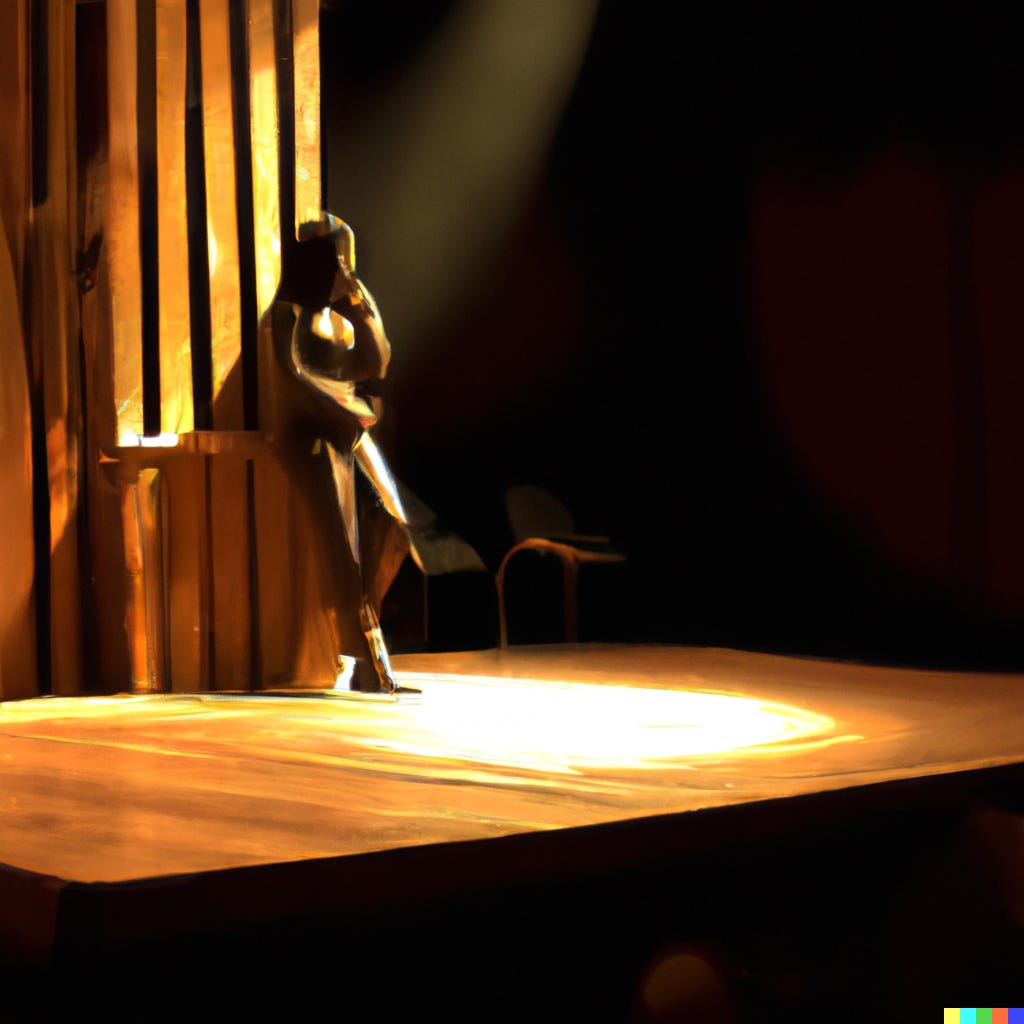Most of us here have been called upon to take a stage at some point or the other in our lives. This experience, while exciting for some, can be rather stressful and anxiety-inducing for many others as well. I was also a part of the latter group when I started taking the stage in my early days in tech communities. When trying to understand this phenomenon for myself, I came across the psychological phenomenon called stage fright.
Stage fright, while challenging to deal with, stage fright is not impossible to tackle. Therefore, in this issue of the newsletter, I will discuss what stage fright is, its symptoms and underlying factors, and the various methods I have learned to mitigate stage fright in my last five years in communities.
What Is Stage Fright?
First things first, it is necessary to understand what stage fright is. Therefore, just like any other modern-day technologist, I asked ChatGPT. The definition it provided came out to be quite accurate:
Stage fright, also known as performance anxiety or stage anxiety, is a psychological phenomenon characterized by feelings of nervousness, fear, and apprehension that individuals experience when they are required to perform in front of an audience. It commonly occurs in situations such as public speaking, acting, singing, playing a musical instrument, or any other form of live performance.
Stage fright is often characterized by a variety of symptoms, such as
Increased heart rate
Nausea
Inability to concentrate
Rapid breathing and sweating
Dry mouth
It is necessary to remember that these are only outwardly visible symptoms, not the underlying problem. To tackle the problem, you must understand what might cause stage fright in the first place.
Factors Behind Stage Fright
Based on my experiences, I developed a list of factors that can cause stage fright for any person. These factors are
Fear of judgment from peers in the audience, in case they don’t like what I say
Fear of failure, for example, what if my demonstration does not succeed
Inexperience in the domain I’m speaking about compared to peers in the audience
Self-consciousness, being overly aware of every action and fault I make
Perfectionism, overly planning each action (a single misstep can induce panic)
Past negative experiences, which result in a loss of confidence
Social comparison between my peers present at the time
Perceived importance of performance, causing an overestimation of stakes
External pressure and expectations from my boss, family, friends, etc.
Circumstantial occurrences, freak accidents that can happen anytime
The truth of being on a stage is that Murphy’s Law is real! Anything that can go wrong will go wrong. And it is alright and valid to feel anxious and stressed in such scenarios.
Tackling Stage Fright
Having discussed factors that can cause stage fright, the question now is how we can tackle stage fright. I took this discussion to Twitter a while back and received some excellent responses, which can be found in this post's comments.
All the responses feature people sharing their experiences and methods of tackling stage fright. I have created a list from my own experiences as well, which I have broken into two parts:
Before the talk
Avoid caffeine and sugar (they only make you more jittery)
Practice performing in front of a mirror or with a camera
Maintain a support group of peers for feedback and support
Focus on areas/domains you’re proficient in (in your content)
Practice mindfulness to help develop a calmer sense
And most importantly,
Use the washroom in time (you don’t want to be uncomfortable for that reason)
During the talk
Breathe. Take your time. It’s your stage and space. You got this.
Use gestures and movements to communicate and mitigate excessive energy
Engage and interact with the audience to become more comfortable with them
Laugh at yourself with the audience when you falter, and move forward
Remember that you have a purpose, and you are capable
Going Forward
Once your stage presentation/performance is through, there are some further steps you can take to become more comfortable with the stage:
Relax. Take a breath. You’re through now. It’s all good.
Gather feedback from peers and listeners (implement as long as it is constructive)
Rewatch the “game film” since this is the best way to self-analyse and improve
Track your micro-wins, as it helps you appreciate your progress
Get on that stage again (‘nuff said!)
One significant learning I’ve had in the last five years on different stages is that it’s okay to be imperfect. As long as you are willing to keep learning and improving and getting up on that stage, this fear will fade away before you know it.
Watch The Talk
I have also delivered this content as a talk at DevRelCon London 2023. You can watch the talk recording below:






